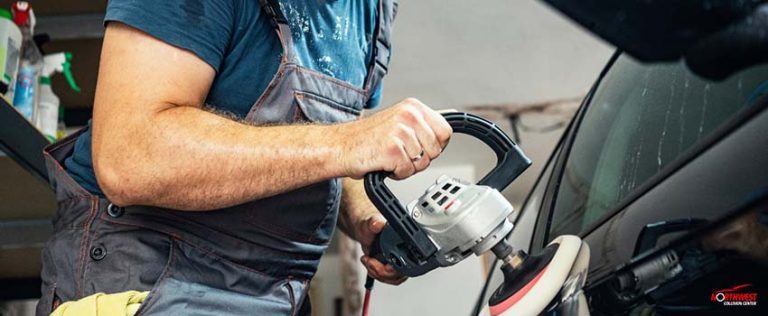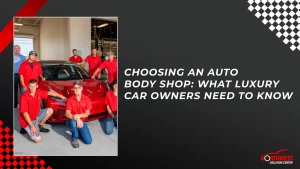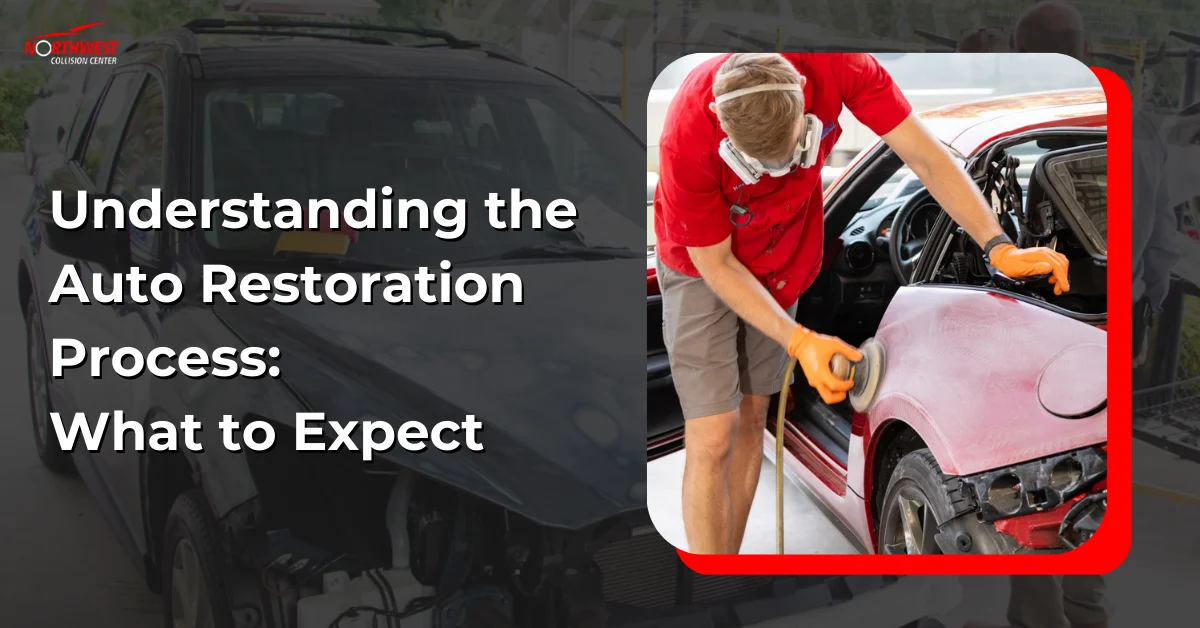Do you remember your first car? A recent survey in America found that people remember more about their first car than their first kiss or their first love. The study found that 93 percent of those interviewed remembered the color of their first car, whereas only 88 percent of those interviewed could remember their first romantic kiss.
The point here is that we form bonds with our cars. Cars are inanimate objects, and yet we develop feelings for them. We care about how they run, and we especially care about how they look. A car’s appearance is of primary importance for many car owners, who often spend a lot of time and money maintaining or improving their cars’ appearance.
To maintain or improve their car’s appearance, car owners will go to great lengths, even down to the smallest details, and this is where car detailing comes into play. In this article, you will find all the information you need about car detailing, which will help you make an informed decision should you decide to detail your car at some point in the future.
What is Car Detailing?
Car detailing can be defined as any activity that improves or enhances a car’s physical appearance. Strictly speaking, car detailing will be concerned with cosmetics rather than mechanics and will involve actions like cleaning, washing, polishing, spot painting, and applying decals and exterior parts like stripes, trimmings, and badges.
The objective of car detailing is to improve or enhance the car’s appearance to where it looks brand new like it just came off the showroom floor. This means the detailer has to be precise and pay attention to small, intricate details, hence the name car detailing.
Types of Car Detailing
The majority of car detailing businesses offer their services as packages with a set price for each package. Typically these packages will include the following services:
Exterior Washing and Drying
The washing and drying process will involve the car detailer hand washing and drying the car’s entire exterior body using specialized products that produce a deeper clean and a bright and long-lasting shine. The washing and drying will include the often overlooked parts of the car, like the wheel rims, door handles, exhaust pipes, low-lying fenders, and all exterior glass surfaces.
Paint Claying
One specialized type of car detailing service is paint claying. It will involve a clay bar being rubbed over a car’s exterior surface after it has been washed, and before it is waxed or polished. The clay bar, together with a lubricant, will pick up any objects leftover after washing the car and make the car surface perfectly prepared for polishing and waxing.
Polishing and Waxing
Washing and drying are typically the first steps in the car detailing process, and they will usually be followed by polishing and waxing. Car detailers will polish a car’s entire exterior, removing minor scratches and stubborn smears and producing a shiny, gleaming finish. Once completed, they will apply a wax coating, enhancing the shine and helping protect and preserve it.
Ceramic Coating
The application of the ceramic coating is another car detailing service. Ceramic coating is a polymer liquid applied over a car’s exterior paint. It provides an extra layer of coating that helps protect the paint from damage, such as scratching and fading.
Paint Protection Film
Paint Protection Film (PPF) is a polyurethane liquid film applied to the exterior over the car’s paint. The polyurethane film hardens over the paint and helps protect it from scratching, fading, mineral deposits, and chipping. A paint protection film is generally considered to provide superior protection to that of ceramic coating.
Window Tinting
Window tinting involves attaching a colored film over a window. This film protects the car’s interior surfaces from exposure to sunlight and damage such as fading or discoloration. Window tinting can also help maintain a cooler temperature inside the car, and it can help shield a driver’s eyes from blinding sun rays.
Glass Cleaning
Car detailers will clean all glass surfaces inside and outside. This will include windows, mirrors, and any glass on the dashboard. Detailers will wash the windows first and then spray on a glass cleaning solution. The cleaning solution is sprayed or rubbed onto the glass surface and then wiped off with a soft cloth or chamois (shammy), removing any dirt smears or stains.
Vacuuming
Car detailers concentrate on a car’s interior as much as the exterior, and part of the interior detailing process is vacuuming. Vacuuming removes dust, lint, dirt, and other allergenic materials and helps preserve the pristine appearance of seating, carpets, and the trunk. Car detailers will vacuum the entire interior of a car with a high-powered vacuum cleaner, paying particular attention to the seating and carpets.
Steam Cleaning
Steam cleaning is a means of cleaning conducted using a steam cleaning machine composed of a steam-releasing component and a vacuum cleaning component. Steam is sprayed onto a surface and then sucked up using the vacuum cleaner.
Steam cleaning removes dirt, dust, and any ingrained material and kills any allergens. Steam cleaning is perfect for removing stubborn stains and deeply ingrained dirt particles.
Other Car Detailing
Other car detailing types include engine detailing, polishing headlights, touch-up paint jobs, pressure spray cleaning, front and back bumper repair, paint buffering, paint correction, and chip repair.
How Much to Detail a Car?
The cost of car detailing will vary depending on who is doing the detailing, what is involved, or how much detailing is involved. Most detailing services will divide their car detailing into three categories: Basic, Comprehensive or Premium, and The Works. Plus, they will also have a flexible charging rate which depends on your car’s condition and the amount of work involved.
The cost of car detailing will depend on factors such as location, vehicle size, condition, how much work is involved, and what procedures are involved. Typically car detailing will range from $50 to $300. As a general guideline, you can expect to pay the following:
- For an average-sized car, basic car detailing will cost between $50 to $125
- For a larger vehicle, such as a van or SUV, car detailing will typically cost between $75 and $125.
As mentioned earlier, your vehicle’s condition will influence the price of detailing. If your vehicle is in poor condition and requires a lot of work, you can expect to pay $150 for a normal-sized vehicle and $175 for a larger-sized vehicle.
There are also extra services that are charged separately. For example, if you choose to get a superior wax or ceramic coating, this may cost you an extra $50.
What Is A Car Detailing Kit?
Ideally, bringing your car to a professional for car detailing is better. However, you can also do some car detailing yourself using a car detailing kit. Car detailing kits usually have the basic tools to wash and wax your car. Kits will also often include products for specific areas of your car, like wheel cleaners or specialized glass cleaners.
Conclusion
As Americans, we are somewhat obsessed with our cars and their appearance. When it comes to restoring or maintaining your car’s appearance, you will need car detailing. As the name suggests, car detailing is a process that involves restoring or enhancing your car’s appearance from the biggest to the smallest details.
Car detailing is a specialized field that requires experience and special equipment to be conducted properly and achieve the desired results. Car detailing will set you back anywhere from $50 to $500, depending mainly on the condition of your car, where you are located, and what work you require to be done.
For the best results, let car detailing professionals like Northwest Collision Center do it for you.
While it is indeed possible for you to detail your car yourself, better results will be obtained if you utilize the car detailing services of a professional company like Northwest Collision Center, a reliable auto body shop in Largo, FL. A professional car detailer has the necessary experience to complete high-quality car detailing quickly and efficiently, bringing your car back to a shiny, sparkling clean as new condition.










